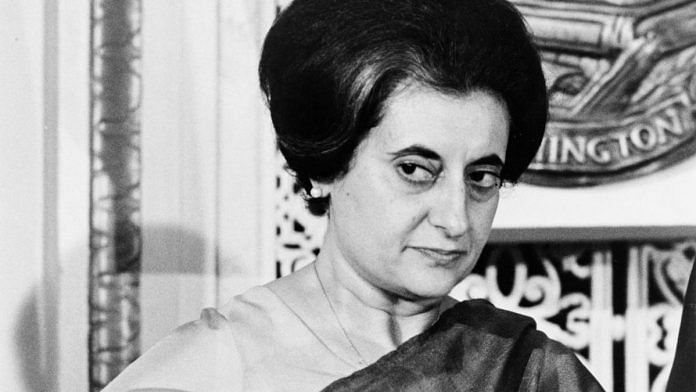In the early morning of 5 November 1971 in Washington, D.C., a very short, nine-minute private meeting was convened to prepare for a summit later in the day. One of the participants in the summit was to be the visiting Indian PM Indira Gandhi. In the preparatory meeting, then US President Richard Nixon, his assistant for national security affairs Henry Kissinger and the President’s assistant H.R. Haldeman were present. It started with President Nixon calling PM Indira a b***h and Kissinger chipping in, saying, ‘Well, the Indians are b******s anyway.’
These slurs do not appear to be hurled in any rage or anger or in the heat of the moment but in a normal, conversational tone. The participants in the conversations seem to have said what they actually felt. In this short conversation, these demeaning and outrageous abuses were repeated a number of times.
The purpose here is not to find answers to why the top US leadership used abusive language towards India and its leadership—this prejudicial attitude of the American establishment is a subject of a deeper study. The objective here is to understand the Western media’s reaction to this incident. This official conversation was declassified on 28 June 2005 when the US Bureau of Public Affairs issued a formal press release.
Also read: Indira Gandhi, Ronald Reagan exchanged polite letters for show. Neither’s heart was in it
Libel and Western Media
In journalism, it is a common practice to file stories immediately when any such information becomes public. In this case, the information did not arise from hearsay but came from the official accounts of the US government. Hence, there was no concern about the veracity of the information. There should have been an instant public condemnation by the media of such an inept behaviour. However, no such news report was released. I do not believe that the media can use the argument of being too busy to check its information. Not commenting on these slurs almost amount to endorsement of such an intemperate language.
It seemed that the media was looking for an angle so that it could give an escape route to the former US president and his team for their foul language against a country and its PM. The Western media waited for Kissinger’s conditional apology to publish the news item. A rather forced and conditional apology came from him on 2 July 2005. Only then did the media run headlines such as ‘Kissinger Sorry for Deriding Mrs Gandhi’ (Guardian), ‘Kissinger Regrets 1971 Remarks on India’ (New York Times), ‘Kissinger Apologizes for ’71 Remarks About I. Gandhi’ (Washington Post), ‘Kissinger Regrets Deriding India’s Leader’ (NBC News),and ‘Kissinger Regrets India Comments’ (BBC News).
All these headlines have one thing in common—they focus on the apology tendered by Kissinger and not on the abuses hurled by the US officials. For the Western media, the act of abusing India was not newsworthy itself. Hence, for these publications, the big news was about Kissinger apologizing and not the foul and filthy language used by the then US president and his aides. These headlines raise serious questions about Western media’s attitude towards India.
All the Western media publications mentioned above did not question the US government on this issue. All the reports were based on a secondary source instead of getting their correspondents to cover the story. A local Indian TV channel, NDTV, sought Kissinger’s reaction to such foul language. International agencies picked the news from the channel and others just copied it. In the story, while apologizing for the foul language, Kissinger seemed to be rationalizing its use and said that it had to be seen ‘in the context of the Cold War politics’, with India being a Soviet ally. However, all they seem to have done is reproduce identical reports quoting NDTV. This speaks volumes about their professionalism and ethical standards of these media outfits.
 This excerpt from Western Media Narratives on India: From Gandhi to Modi by Umesh Upadhyay has been published with permission from Rupa Publications.
This excerpt from Western Media Narratives on India: From Gandhi to Modi by Umesh Upadhyay has been published with permission from Rupa Publications.



